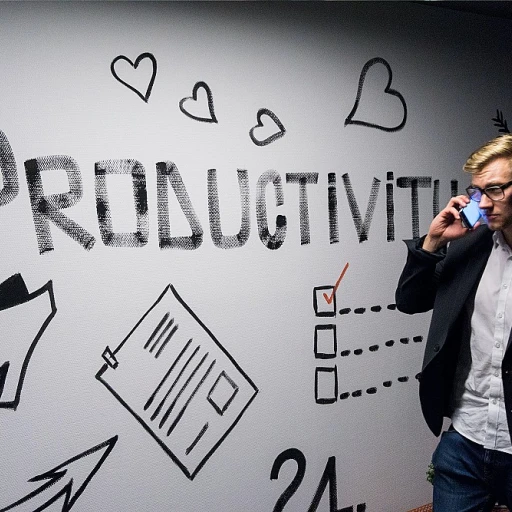
The Evolving Role of Human Resource Generalists
The Changing Landscape of Human Resource Roles
The role of human resource generalists has undergone significant transformations over the years. As business environments evolve and companies adapt to new challenges, these professionals are no longer confined to traditional functions. The shift towards a more strategic approach in HR management means that human resource generalists are expected to manage a diverse array of responsibilities.
In recent years, there’s an increasing focus on leveraging technology and enhancing employee experience. Beyond the basic administrative tasks, generalists are now required to take on roles that support business operations and contribute to company growth. Their responsibilities encompass everything from employee relations and performance management to strategic resource management and change initiatives.
Emphasis is also placed on becoming effective business partners within their organizations. This involves working closely with managers and employees to ensure that human resource strategies align with company goals. The objectives are clear: optimize processes, enhance employee satisfaction, and ensure that the workforce is equipped for future challenges.
With the integration of AI in the human resources sector, generalists find themselves at the forefront of exploring new technologies. These advancements help in managing remote work environments and provide innovative solutions for career development opportunities. The age of digital transformation offers HR professionals a chance to reshape traditional practices, ultimately creating more flexible and efficient work environments.
AI Tools and Technologies in HR
AI Tools and Technologies Revolutionizing HR
In recent years, artificial intelligence has found its way into various aspects of human resources, bringing radical changes. These technological advancements have aimed to streamline operations, enhance employee experience, and optimize resource management. AI-driven tools are no longer just a futuristic vision but a present-day reality, harnessed in different areas of HR management. From performance management to talent acquisition, the enhanced workforce management by AI has significantly shaped recent HR strategies.- Automated Recruitment: AI simplifies the recruitment process by quickly scanning and evaluating resumes, matching candidate skills to job requirements seamlessly. This saves countless hours that HR generalists would have spent manually reviewing applications.
- Employee Engagement: AI tools can analyze employee feedback and sentiment through surveys, offering insights into staff engagement levels. This allows HR managers to proactively address potential issues and improve overall employee relations.
- Career Development: AI technology can offer personalized career pathing for employees, identifying opportunities for skill development. Companies can use this data to facilitate targeted training programs, enhancing their workforce capabilities and business partner relations.
Opportunities for Skill Development
Growing Skills for Today's HR Tasks
In the pursuit of thriving in the fast-paced world of human resources, HR generalists have a golden opportunity to delve into skill development. With the emergence of AI tools in HR, like the ones we've witnessed a few days ago, embracing tech can redefine an employee's journey within a company. While some managers fear the wave of AI and the changes yet to be tapped into, the proactive ones see it as a chance to elevate their resource management abilities. Whether it's harnessing data for better performance management or enhancing employee relations, the potential for career growth is significant.- Embrace Learning Resources: Investing time in understanding new AI tools can enhance the full-time opportunities available. Whether in a generalist role or climbing towards senior generalist positions, staying informed is key.
- Real-World Application: Utilize AI-driven insights to manage employee experiences efficiently. This can streamline operations, impacting how managers view their roles in business partnerships.
- Adaptation for Remote Work: Especially in a united states setting, where remote work has seen a spike, AI tools can bridge the gap, ensuring employee stories and achievements are never lost in translation.
Challenges and Ethical Considerations
Confronting Ethical Implications and HR Challenges
As AI technologies integrate deeper into human resource management, addressing ethical considerations becomes paramount. In an ever-evolving business landscape, HR generalists are tasked with managing employee relations while upholding ethical standards. AI's ability to analyze extensive data sets raises questions about transparency and bias. HR professionals must ensure AI systems are designed to promote fairness and equality, without unintended biases impacting decisions regarding opportunities or employee performance.
Another layer of complexity is ensuring privacy and data protection. AI systems frequently collect and process personal data from employees. As resources managers navigate these waters, they must comply with regulations and protect sensitive information. Balancing the efficiency of AI tools with employees' rights necessitates ongoing vigilance and adherence to ethical guidelines.
Addressing Workforce Adaptation and Employee Relations
The transition to AI-driven processes can create significant changes in work dynamics. Employees may feel threatened by potential job displacement or changes in full-time roles. HR generalists play a crucial role in facilitating positive employee experience through this transition. They act as a business partner to employees, providing support, and ensuring that communication remains transparent.
Investing in learning resources and providing career development opportunities for employees can mitigate anxieties over remote work shifts and automation. Senior generalists can also champion change management strategies, helping the workforce embrace new technologies while aligning them with company goals and values. As such, HR departments must remain vigilant, ensuring that employee stories of growth and adaptation are celebrated and shared within the organization.
AI's Impact on Recruitment and Talent Management
Revolutionizing Recruitment and Talent Management with AI
Artificial intelligence is significantly transforming the approach to recruitment and talent management within human resources. The use of AI in hiring processes has streamlined operations, reduced biases, and enhanced efficiency. AI-driven technologies assist in sifting through numerous applications, identifying the most qualified candidates for manager employee positions and other roles. This automated process is considerably more effective than manual screenings, allowing HR departments to better manage their employee relations resources. As a result, companies are better equipped to find the right talent for their business, enhancing employee experience and overall satisfaction. Furthermore, AI tools offer the unique capability to leverage historical data, analyzing patterns to predict performance management outcomes. This facilitates better decision-making processes, aiding in the development of tailored strategies that enhance the employee experience and open up career opportunities for full-time staff. For instance, AI can identify potential business partner or senior generalist roles that align with an employee's skills and aspirations. However, there is also a nuanced challenge in ensuring the integration of AI does not create feelings of alienation among human resource teams. It is essential to maintain a balance between AI efficiency and the human element in HR, addressing any concerns employees may have regarding algorithmic decision-making. A notable trend influenced by AI is the increased adoption of remote work. Weeks ago, this shift prompted a rethink of conventional recruitment and talent management strategies. As remote positions become more common, understanding and managing remote employee dynamics has become critical for HR departments. Ultimately, as AI continues to evolve, its partnership with human capital will likely diversify the scope of opportunities job seekers have across the United States. Whether it’s a resources manager in New York or a people operations specialist looking to move into a remote work capacity, AI-driven insights are crucial in shaping the future of human resource operations and employee stories.Preparing for the Future: Strategies for HR Generalists
Adapting to Technological Advancements
As the landscape of human resources continues to evolve, HR generalists must stay ahead by embracing technological advancements. This involves not only understanding the latest AI tools but also integrating them into daily operations. By doing so, HR professionals can enhance their efficiency and effectiveness, ultimately benefiting the entire company. Staying updated with AI trends and resources is crucial for maintaining a competitive edge in the industry.
Fostering Continuous Learning
Continuous learning is essential for HR generalists to thrive in an AI-driven environment. Engaging in regular training sessions and workshops can help HR professionals develop new skills and competencies. This commitment to learning not only improves individual career prospects but also strengthens the overall capabilities of the HR team. Encouraging a culture of learning within the company can lead to better employee relations and improved performance management.
Enhancing Employee Experience
AI offers numerous opportunities to enhance the employee experience. By leveraging AI tools, HR generalists can streamline processes such as recruitment and talent management, making them more efficient and personalized. This can lead to increased job satisfaction and retention rates. Additionally, AI can provide valuable insights into employee stories and performance, allowing HR professionals to make informed decisions that benefit both the employees and the business.
Building Strategic Partnerships
HR generalists should focus on building strategic partnerships within the organization. By collaborating with other departments, such as IT and operations, HR can ensure that AI tools are implemented effectively and align with the company's goals. This collaboration can also help HR professionals gain a deeper understanding of the business, enabling them to act as true business partners and contribute to the company's success.
Embracing Remote Work Opportunities
The rise of remote work has transformed the way businesses operate. HR generalists must adapt to this change by developing strategies that support remote work environments. This includes implementing AI tools that facilitate communication and collaboration among remote teams. By embracing remote work opportunities, HR professionals can attract a diverse talent pool and create a more flexible and inclusive workplace.













